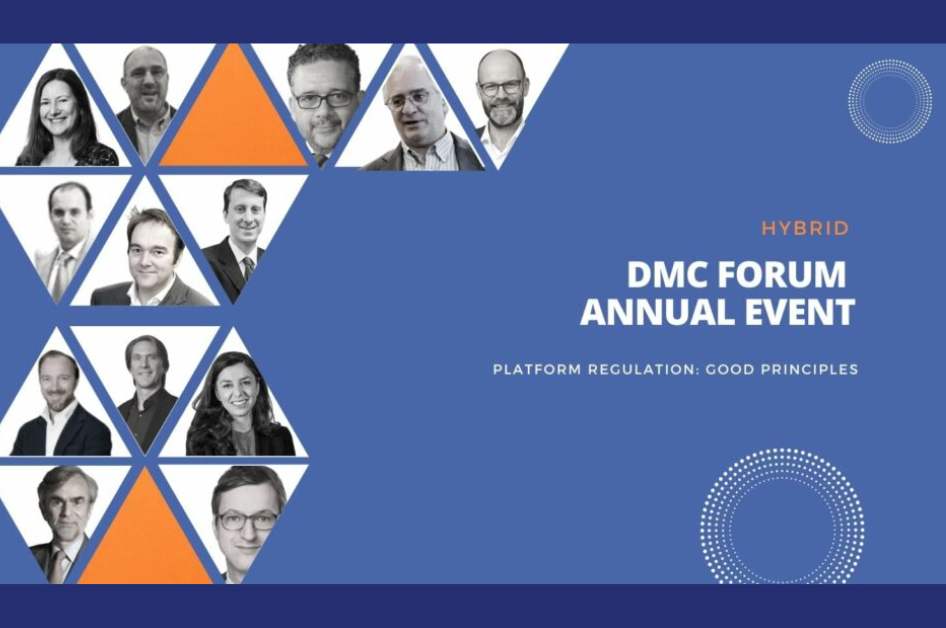The regulatory debate on platforms and digital markets had rapidly moved from whether we need new rules to regulate activities and competition in the digital space to what the new principles for such a regulation should be. A plethora of legislative initiatives were being undertaken around the world, some (such as the European DMA act) at a more advanced stage, others still under development. These new law proposals advanced a mix of traditional and new concepts, logics and criteria for detecting and remedying anticompetitive cases in digital markets. Traditional concepts such as “interoperability” and “portability” from telco regulation were often invoked as potential remedy to entrenchment problems due to excessive concentration of data in the hands of few powerful firms, along with new concepts such as “gatekeepers” (in the EU’s DMA proposal) or “UPSCAM” (in the German Act Against Restraints of Competition).
However, what the guiding principles of such regulation should be was largely left undefined. The DMA explicitly referred to two principles: fairness and contestability. Yet, what these principles mean, conceptually and in practice, remained vague, and academics had started debating on their essence[1]. More fundamentally, how those principles linked to the law’s provisions and restrictions imposed on designated gatekeepers and whether they should have guided the ultimate objectives of platform regulation had been subject to criticisms [2]. The lack of clear principles was problematic on two fronts. First, it might have led to a fragmented regulatory environment, whereby each regulator came up with its own set of obligations and restrictions. Second, it limited the ability to develop coherent criteria of application of such provisions. On a more fundamental level lay the question of what objectives we wanted to achieve and what principles should accordingly have been established to pursue them.
In the DCM Forum Annual Event, the debate on platform regulation was re-launched by taking a step back and asking this more profound question:
“What are good principles of platform regulation in digital markets?”
More specifically, a number of related questions were considered, such as:
– What is fairness in digital markets and how do we guarantee it?
– There are different kinds of potential market contestability: which one should we focus on and how do we identify contestability problems?
– Should the focus be solely on competition restraints or also on value creation? What principles would be effective to guarantee that the two objectives are compatible?
– What is the role of innovation ecosystems in digital markets? How do we incorporate ecosystem dynamics in the debate (and law drafts)?
The DMC Forum Annual Event brought together leading academic experts on digital platforms and ecosystems to address those questions, the implications for the regulatory measures being proposed, and possible ways to move forward.
[1] See e.g., the recent work by Crawford et al. 2021 on the concepts of fairness and contestability in the DMA.
[2] See e.g., the discussion of some of the DMA criticisms before the EU Parliament, in particular the remarks advanced by Cennamo and Scott Morton in relation to the lack of clear principles.
Watch the recording:
Resources
Frederic Jenny, Competition law and digital ecosystems: Learning to walk before we run, Industrial and Corporate Change, 2021;, dtab047, https://doi.org/10.1093/icc/dtab047
Michael A Cusumano, Annabelle Gawer, David B Yoffie, Can self-regulation save digital platforms?, Industrial and Corporate Change, 2021;, dtab052, https://doi.org/10.1093/icc/dtab052
“Platform Regulation: Lessons from Utility Industries.” VOX, CEPR Policy Portal, https://voxeu.org/article/platform-regulation-lessons-utility-industries.
Jacobides Michael. and Lianos Ioannis (2021), ‘Ecosystems and competition law in theory and practice,’ Industrial &
Corporate Change, Special Issue on Regulating Platforms & Ecosystems, https://papers.ssrn.com/sol3/papers.cfm?abstract_id=3772366
Alaimo Cristina, Kallinikos Jannis. Managing by Data: Algorithmic Categories and Organizing. Organization Studies. 2021;42(9):1385-1407. doi:10.1177/0170840620934062 https://journals.sagepub.com/doi/10.1177/0170840620934062
Alaimo Cristina, Kallinikos Jannis, Valderrama Erika. Platforms as service ecosystems: Lessons from social media. Journal of Information Technology. 2020;35(1):25-48. doi:10.1177/0268396219881462 https://journals.sagepub.com/doi/10.1177/0268396219881462
Cennamo Carmelo, & Santaló Juan. (2013). Platform competition: Strategic trade-offs in platform markets. Strategic Management Journal,
34(11), 1331–1350.
Cennamo, Carmelo, & Santalo, Juan. (2019). Generativity tension and ´
value creation in platform ecosystems. Organization
Science, 30(3): 617–641 https://pubsonline.informs.org/doi/10.1287/orsc.2018.1270














